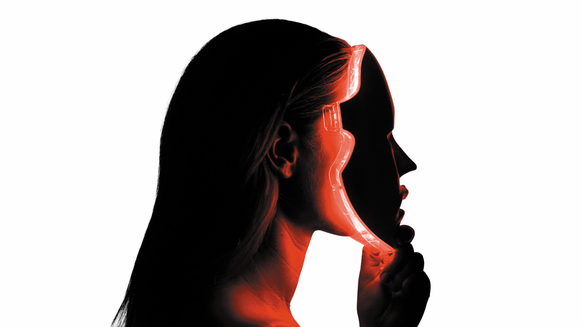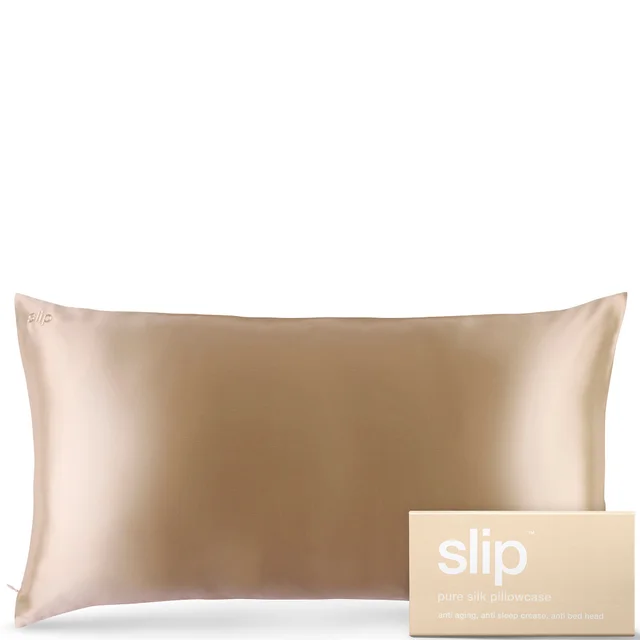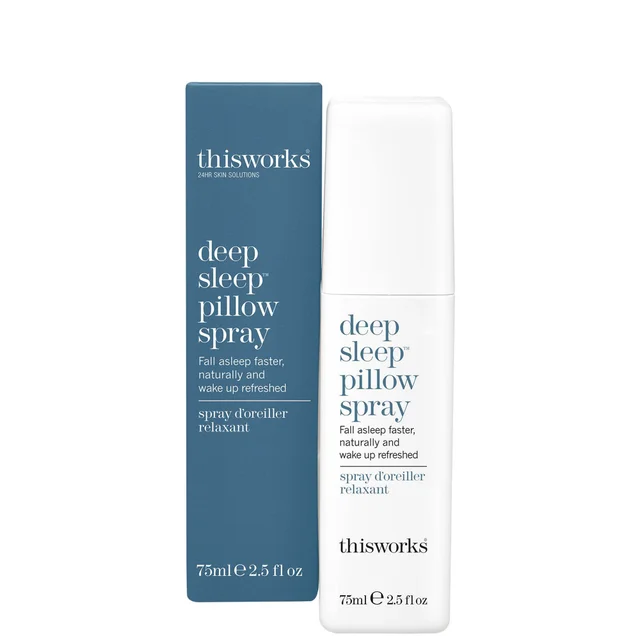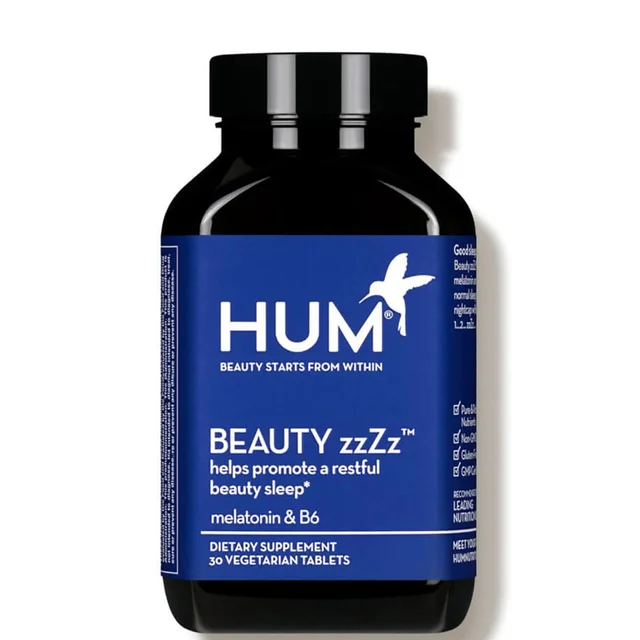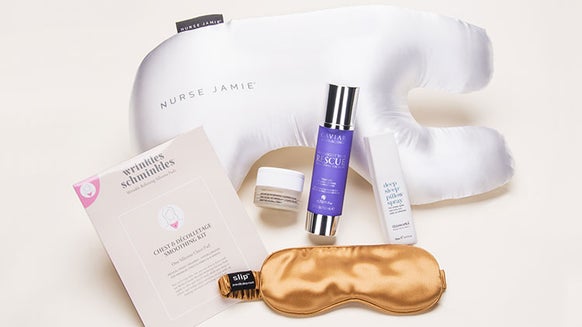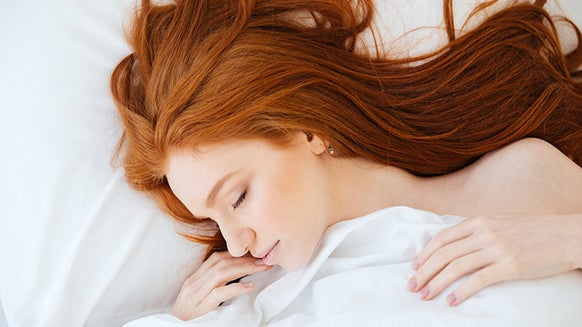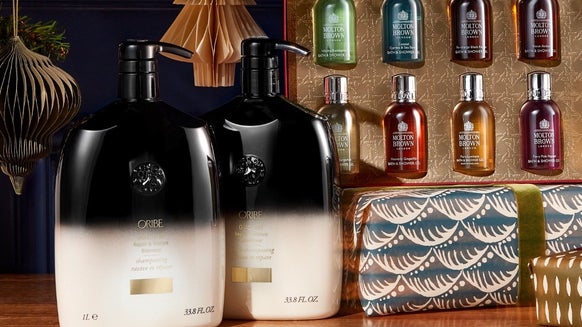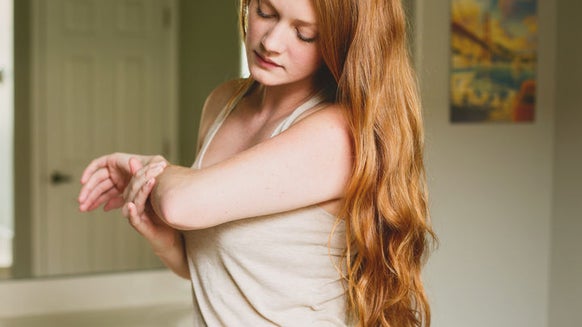5 Ways Lack of Sleep Wrecks Your Skin, Hair and Nails
If catching up on lost sleep is a race you run every night, you’re definitely not alone. According to the Sleep Foundation, up to 70 million American adults struggle with a sleep disorder---from insomnia to sleep apnea and more.
While pulling an occasional all-nighter isn’t so bad, constantly depriving yourself of sleep can put your body in a constant state of stress. Sleep deprivation, according to plastic surgeon and dermatologist Dr. Mary Lynn Moran, MD, causes an elevation of cortisol, the stress hormone, interfering with our bodies' ability to mend itself overnight.
As the body's largest organ, skin is usually where the first signs of damage appears, and we're not just talking about dark circles and eye bags. Here are just some of the ways insufficient sleep can wreak havoc on your appearance.
1. Lack of sleep can make you look older.
Dr. Moran says that when we don’t log away those hours with the sandman, our aging process is accelerated, leading to visible wrinkles in a shorter period of time. She notes that several studies have demonstrated that women who are deprived of sleep have more wrinkles, dehydrated skin, large pores, increased redness and increased dark circles under their eyes. “Our cells regenerate while we sleep, so if we don't get good quality sleep, they are unable to repair themselves, leaving us looking older,” she explains.
The position of how you sleep can make a difference in your skin’s youth, too. Dr. Moran says side sleeping can result in deeper wrinkles: “I often see wrinkles that are greater on one side compared to the other and that is usually a sign that the patient sleeps on that side. Wrinkles that aren't in the normal places or orientation that you would expect from repetitive movement are usually from sleeping as well,” she says.
If the only way you can get comfortable is to nod off on your side, dermatologist Dr. Alan Levy recommends investing in silk pillowcases to avoid sleep lines and to keep your skin healthy and smooth.
2. It can cause breakouts.
As blissful as it would be to no longer have to deal with acne or blackheads past a certain age, many people battle skin woes for a large portion of their life. If you’re trying to ward away these pesky pimples, though, Dr. Levy says getting a great night’s rest is an important step in your routine. “Poor sleep has been associated with immune dysregulation and inflammation in the skin which leads to dryness, redness and breakouts. The more inflammation in the skin, the less glow your face will have,” he explains.
3. It can make your existing skin conditions worse.
Unfortunately, if you’re someone who battles acne, psoriasis, rosacea, eczema and other inflammatory disorders, dermatologist Dr. Jennifer M. Segal, M.D., says it’s much more important for you to earn those eight hours of rest each night. A lack of sleep can usually heighten your levels of anxiety, and in return, infuriate breakouts. “It is important to maintain healthy sleep, exercise and eating habits in addition to medical therapies for these conditions,” she says.
4. It can affect hair growth.
Aside from hormones, diet and illness, Dr. Segal explains that our lifestyle habits can also affect the quality and quantity of our hair. Because lack of sleep can mimic our bodies' response to stress, it can result in "telogen effluvium, a non-permanent hair loss that can occur after an event that puts stress on the body, including pregnancy, illness or a stressful life event,” she shares.
5. It can make your nails weak.
Dr. Segal explains that when you find yourself overly anxious and not able to catch as much rest time as you normally would, your nails have a hard time sprouting in a healthy way, making them weak and brittle. “Stress can affect the nail matrix, where the nail is produced, and can result in abnormal growth of the nail,” she explains. “These changes typically resolve once good health and healthy habits are restored, and will resolve as the nail grows out.”
How do you prepare for beauty sleep?
Everyone has evenings during which one too many cocktails at happy hour or one baby who refused to go to sleep created a stressful, sleepless night. But as much as you can, Dr. Levy stresses the importance of maintaining a pre-bedtime routine to help your skin repair itself while you sleep. The first, most important step to keep your pores fresh, clean and healthy? Washing your face. “Not washing your makeup off before bed can cause pores to get clogged and ultimately lead to breakouts,” he says.
Need more tips on how to create the perfect sleeping environment for your skin? From sleep-inducing formulas to sleep masks and more, here are a few products to stock up on.

From the latest hair and makeup trends to the best solutions for your skin issues, we've got all your beauty concerns covered!
Related Posts
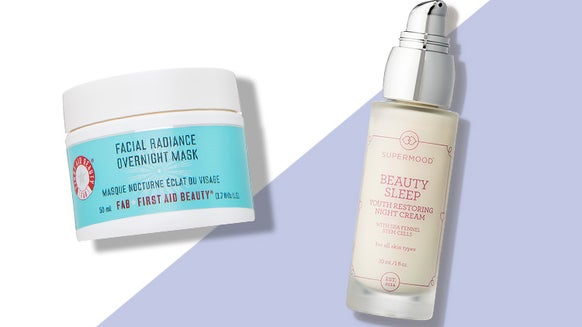
Sleeping Mask vs. Night Cream: What’s the Difference and Which One to Use
